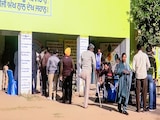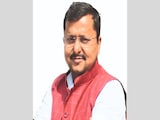Prime Minister Narendra Modi targeted the Congress at the launch of a new pan-India healthcare project today, saying the "earlier governments neglected the health sector". "In the first 70 years of Independence no party focused on building health infrastructure as was needed… The long-term governments in the country, instead of fully developing the country's healthcare system, deprived it of facilities," he said, adding that his government is "preparing our health system to tackle any future pandemic".
Launching the Rs 5,000-crore Pradhan Mantri Ayushman Bharat Health Infrastructure Mission, the Prime Minister said, "Today there is a government at the Center and in the state which understands the pain of the poor, the downtrodden, oppressed, backward, middle class -- everyone. We are working day and night to improve health facilities in the country".
One of the largest pan-India schemes, the Ayushman Bharat Health Infrastructure Mission is meant to plug the gaps in the public health infrastructure, especially in terms of critical care facilities and primary care in urban and rural areas.
There are three major aspects of the Ayushman Bharat Health Infrastructure Mission to address the different gaps in the health sector of the country, the Prime Minister said.
"The first is related to the creation of elaborate facilities for diagnostics and treatment. The second aspect of the scheme is related to the testing network for diagnosis of diseases. Under this mission, necessary infrastructure will be developed for the diagnosis, monitoring of diseases," he added.
The project will provide for a full range of diagnostic services through a network of laboratories across the country, and set up integrated public health labs in all districts.
Not only will it support the 17,788 rural health and wellness centres spread across 10 high focus states, another 11,024 urban health and wellness centres will be established in all the states.
Under the scheme, a national institution for health, four new national institutes for virology, a regional research platform for WHO South East Asia Region, nine biosafety level-III laboratories, five new regional national centre for disease control will also be set up.















